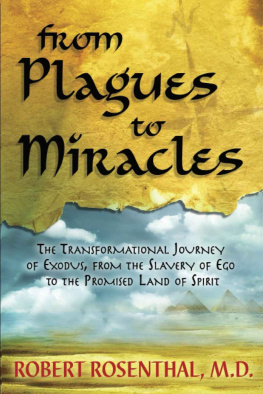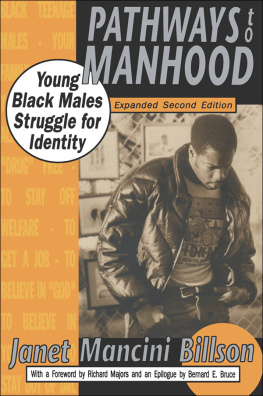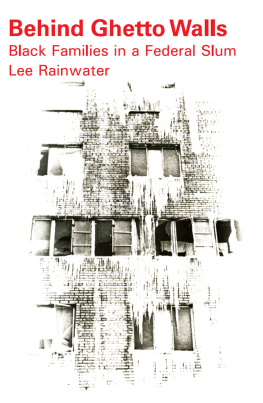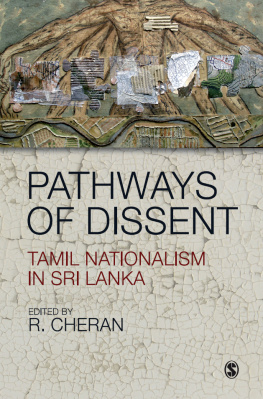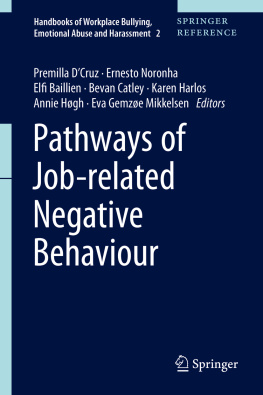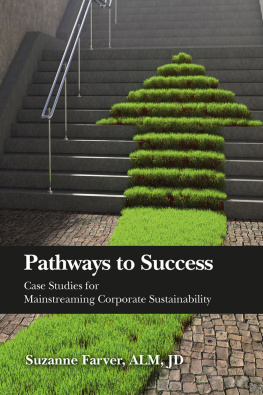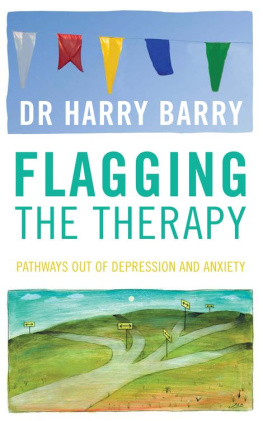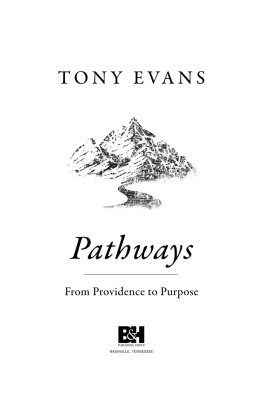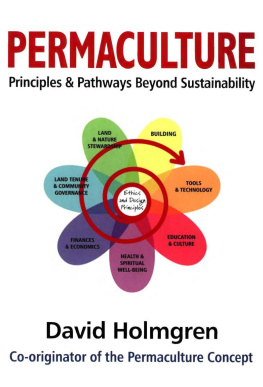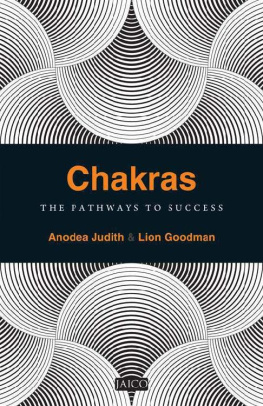different strokes
robert rosenthal bernard bruce faith dunne florence ladd
different strokes
pathways to maturity in the boston ghetto
a report to the ford foundation
To the young men of Roxbury and North Dorchester who joined in Project Pathwaysthis is their book, far more than ours.
First published 1976 by Westview Press, Inc.
Published 2019 by Routledge
52 Vanderbilt Avenue, New York, NY 10017
2 Park Square, Milton Park, Abingdon, Oxon OX14 4RN
Routledge is an imprint of the Taylor & Francis Group, an informa business
Copyright 1976 by The Ford Foundation.
All rights reserved. No part of this book may be reprinted or reproduced or utilised in any form or by any electronic, mechanical, or other means, now known or hereafter invented, including photocopying and recording, or in any information storage or retrieval system, without permission in writing from the publishers.
Notice:
Product or corporate names may be trademarks or registered trademarks, and are used only for identification and explanation without intent to infringe.
Library of Congress Cataloging in Publication Data
Main entry under title:
Different strokes.
Bibliography: p.
1. Afro-American youthMassachusettsBostonCase
studies. 2. BostonSocial conditionsCase studies. I. Rosenthal,
Robert Alan.
F73.9.N4D53 301.43'15'0974461 76-7952
ISBN 13: 978-0-367-02061-3 (hbk)
Acknowledgements
Dozens of people worked on Project Pathwaysso many that it would be folly to try to thank them all individually. Many volunteered their time out of commitment to the Project, others worked long and hard after the money ran out to keep Pathways alive. We are grateful to all of them.
We are also grateful to the agencies and institutions who generously supported the Project and this book: the U.S. Office of Education, the Ford Foundation, the Harvard Graduate School of Education, and the Research Institute for Educational Problems. A longitudinal project extending over more than eight years requires of a funding agency and a sponsoring institution a difficult and consistent faith that it will, someday, be finished. We feel fortunate to have had sponsors willing to sustain that faith. At the same time, of course, the responsibilities for the analysis and conclusions are entirely ours.
In addition, we must express our gratitude to our families, who helped us through long months of writing and revision, to friends who read and re-read drafts, to colleagues who counseled and edited.
We would especially like to thank a few people whose unflagging support has made this book possible: Marjorie Martus of the Ford Foundation, who believed that nineteen file cabinets full of raw data could be transformed into a manuscript; Daniel R. Stein, without whom that transformation would not have taken place; and especially Henry S. Dyer, consultant, editor, angel of the writing project since its inception.
But, above all, our thanks must go to the Roxbury and North Dorchester families who asked us into their homes and their experiences, sacrificing both time and privacy so that we could help them tell the stories of young men growing up in Boston's ghetto. We only hope we have accurately conveyed their lives.
Part I
Why and Where
Chapter
1
Introduction
Our study of the lives of black youngsters in the Boston ghetto began in 1967 and ran through 1974. When it began, the Great Society programs of President Lyndon Johnson's War on Poverty were in full gear. The Economic Opportunity Act of 1964 had appropriated money for vocational training at schools and colleges, the establishment of work-training camps, neighborhood centers for poor youths, and aid to a wide variety of community action programs. The Medicare bill of 1965 allowed hospital and nursing-home aid for persons over 65. Following up on the Civil Rights Act of 1964, a strong voter-rights bill was passed in 1965 that abolished literacy tests and other voting restrictions and authorized federal officials to register voters where discrimination existed. In 1966, the Demonstration Cities and Metropolitan Development Act ("Model Cities") provided funds to help 60 to 70 selected cities to rebuild their blighted inner cores. Federal responsibility for aid to education was also accepted by the Congress, and a series of complicated laws gave assistance to states, school districts, and local boards of education. Most of these pieces of legislation required local participation in the allocation and distribution of funds. Among the most prominent and widely-known programs developed were the Title I programs under ESEA, Upward Bound, and Head Start.
During the same decade, along with rising expectations among both black and white poor, there was increasing tension in the black ghettos. Uprisings in the Watts area of Los Angeles were followed by similar riots in the black slums of many cities. The assassination in Memphis, Tennessee, in April 1968 of Dr. Martin Luther King, Jr., triggered a new series of urban disorders.
Maybe we were naive to expect the federal government to subsidize a social revolution, or members of state and local governments to share hard-won political power with the poor or with blacks. Some now say that the federal anti-poverty program was badly conceived and thus foredoomed, that the field workers were innocent, opportunistic, or intractable. Some now say that the effort was too limited to make a serious dent in the economic inequities which burden the nation's poor.
Whichever hindsight interpretation one chooses, several things stand out. First, the early and mid-sixties offered a climate of hope for black people, augmented by new opportunities for broader participation by blacks in community planning and decision-making. This made black people more willing to struggle for their just share of resources, and gave many of them experience in power politics and bureaucratic functioning, proving once and for all that political strategy was not the mysterious and private preserve of the white man. Demands by blacks for community control and black power grew from the experience gained and the expectations raised during the 1960's.
Second, it became clear that no program could succeed without the participation of those whom it was intended to benefit. The Pathways study was based on that realization. In the early days of the War on Poverty, the federal government put large sums of money into poor communities in the form of educational and vocational training programs for the "disadvantaged." Many policy-makers, planners, and educators were unprepared for the sudden availability of program money. They were forced to generate programs based on sparse and shaky research. Some were distressed by the lack of solid data. Others never doubted that they knew all they had to know about poor and black communities even if they had never seen one. They depended on meager descriptions by researchers, some of whom had only the most minimal contact with the people they described, rather than on direct reports about black people coming from black people themselves. Despite the wealth of novels, stories, and journals through which blacks have communicated the richness of their lives, and their uniquenesses as individuals, administrators and planners often relied on a few available surveys and clinical works, generally by whites which tended to lump together all poor blacks. Some programs developed for poor, black individuals used a social science versioro of "they all look alike, anyway."


